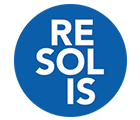Digital and inclusive transition

The digital transition must appear as an opportunity for cities and their inhabitants. To do this, smart city approaches must start from local uses and issues in order to provide technical and organizational responses adapted to each context. Likewise, digital data at the heart of transformations in city government must be considered as a common good, accessible to all with the aim of improving knowledge of the territory, urban management and stimulating economic innovation. This therefore requires considering technology as a tool. Although essential, it must remain at the service of citizens so that the city of tomorrow is not reduced to a simple connected space, potentially creating new exclusions or digital dominations.
Recommendations

Public authorities have the responsibility for good governance and to this end they must adopt digital strategies adapted to their contexts.

Smart city approaches must start from local uses and problems to provide pragmatic technical and organizational responses, adapted to the contexts.

Territorial data is a common good: local authorities must ensure that they constitute a knowledge base accessible to all to improve knowledge of the territory, urban management, promote transparency and stimulate economic innovation.

Digital technology is a lever to encourage the participation of local stakeholders in the management and future of the city.

Implement a digital right for all and reduce digital divides.

Building new economic models for the digital transition.

A partnership between public, private actors and populations to implement the territorial digital transition.



